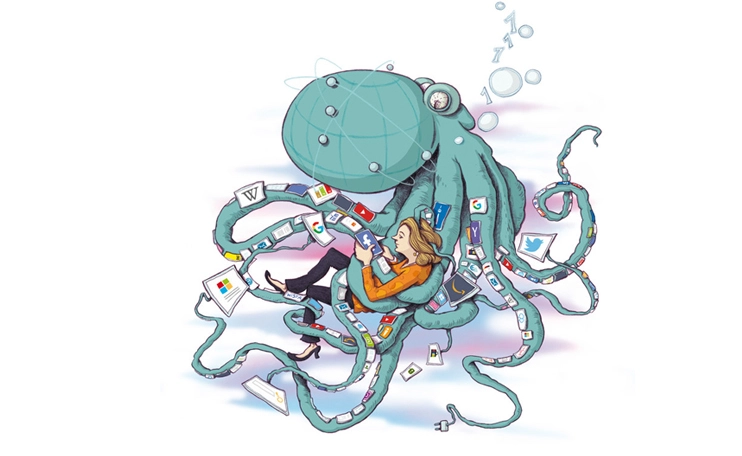Lost in the Web: Sorting the World with Mathematical Precision
Essay by Peter Strunk, a PhD historian, and head of the communications department at WISTA-MANAGEMENT GMBH since 1999
When we go online, it is good to know what we’re looking for. Otherwise, a journey through the internet becomes a magical mystery tour, where torrential information fills up the space around us. Whenever we “surf the web” aimlessly, drifting from keyword to keyword, we get completely lost in information. Information that can be put out by anybody within a blink of an eye. The temptation of the internet, says German blogger and publicist Sascha Lobo, turns us into digital wanderers with no self-control. The pressure of ubiquitous communication interferes with our work and prevents us from creativity.
Speed is one of the internet’s great strengths. It is also its greatest weakness. There is no yesterday and tomorrow. In this era of acceleration, time unceasingly marches on. Even when we think we are keeping up, we are not. E-Mails put us in a state of round-the-clock alert; the only time we know is the relentless “instantly, now, immediately”. But those who live in a permanent state of alert, might miss the real emergency in the end.
The internet creates a world on a wire. It is designed so that the plug cannot be pulled, because nobody knows where it is. The original idea was to build a global communication system, which will continue working even after a global nuclear war has reduced the world to rubble. If we expect the internet to produce wisdom left to its own accord, we first must create mechanisms that ensure that the sum of its content has structure, relevance and validity. We would have to create order online. This would require a credible authority that safeguards the validity of information. The web would have to be made “calculable”, and thus manageable. However, this stands against the internet’s fundamental principles.
Today’s use of the internet requires users to assess whether the information provided is reliable, or, to use the language of science, verifiable and, ultimately, provable. This requires some experience in critically reviewing sources. Something that one should learn at school, or better university. The quality of many articles on Wikipedia is decent. But can we really rely on their substance? Are the facts accounted for by citing sources? Most users do not seem to care. As long as it’s free, they will take online content at face value.
Far from being a social space, the internet has become a commercial endeavour. Search engines are companies that make profits. The criteria used to evaluate and select information are secret. Users should realise that a search engine never neutrally selects information. Today, algorithms determine which information users receive. The world is sorted with mathematical precision. The all-dominating algorithms determine the value of content by the number of clicks. Clicks produce traffic, which is what the advertising industry desires. It needs customers. This is what the internet is about. The people using it should be acutely aware of this.
